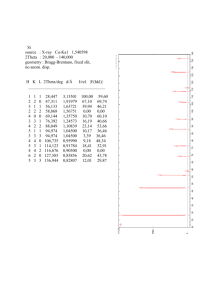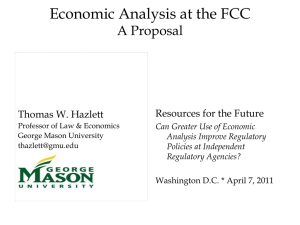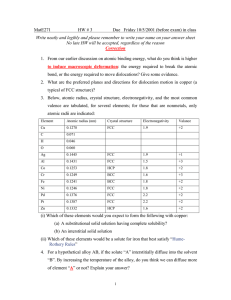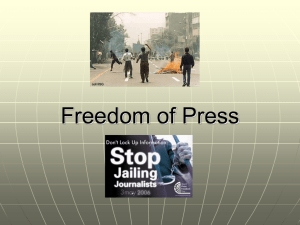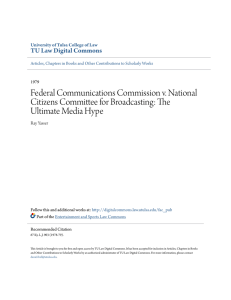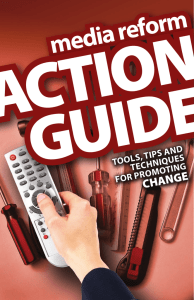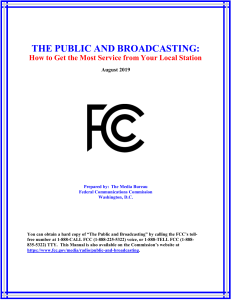Big Media, Bad Idea
advertisement
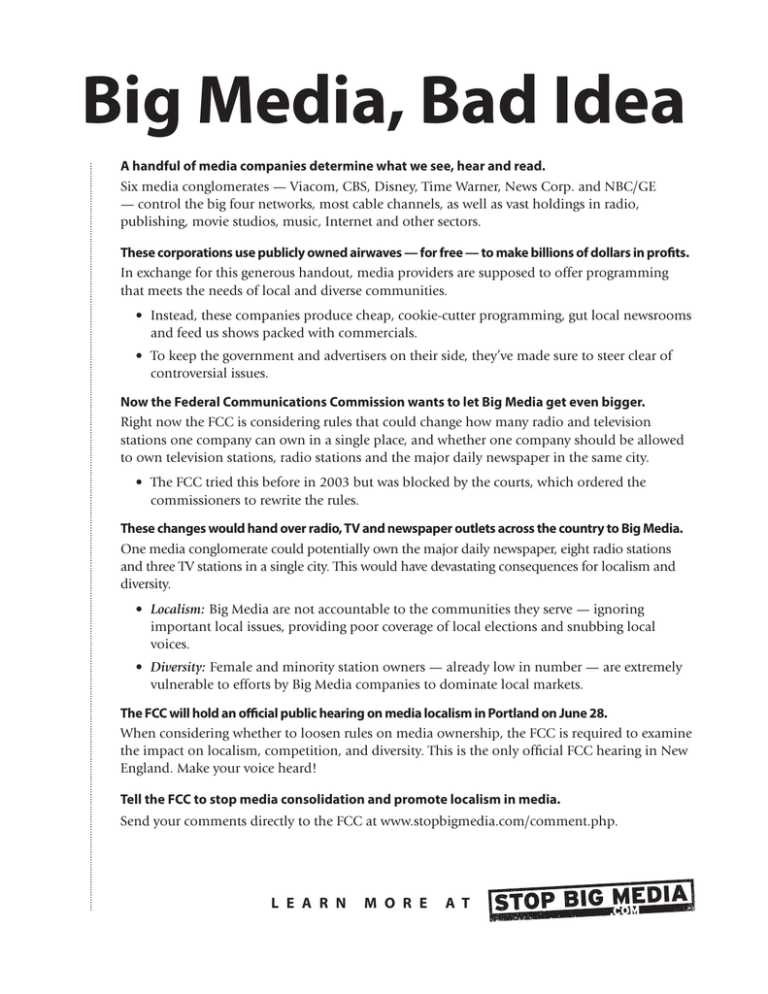
Big Media, Bad Idea A handful of media companies determine what we see, hear and read. Six media conglomerates — Viacom, CBS, Disney, Time Warner, News Corp. and NBC/GE — control the big four networks, most cable channels, as well as vast holdings in radio, publishing, movie studios, music, Internet and other sectors. These corporations use publicly owned airwaves — for free — to make billions of dollars in profits. In exchange for this generous handout, media providers are supposed to offer programming that meets the needs of local and diverse communities. • Instead, these companies produce cheap, cookie-cutter programming, gut local newsrooms and feed us shows packed with commercials. • To keep the government and advertisers on their side, they’ve made sure to steer clear of controversial issues. Now the Federal Communications Commission wants to let Big Media get even bigger. Right now the FCC is considering rules that could change how many radio and television stations one company can own in a single place, and whether one company should be allowed to own television stations, radio stations and the major daily newspaper in the same city. • The FCC tried this before in 2003 but was blocked by the courts, which ordered the commissioners to rewrite the rules. These changes would hand over radio, TV and newspaper outlets across the country to Big Media. One media conglomerate could potentially own the major daily newspaper, eight radio stations and three TV stations in a single city. This would have devastating consequences for localism and diversity. • Localism: Big Media are not accountable to the communities they serve — ignoring important local issues, providing poor coverage of local elections and snubbing local voices. • Diversity: Female and minority station owners — already low in number — are extremely vulnerable to efforts by Big Media companies to dominate local markets. The FCC will hold an official public hearing on media localism in Portland on June 28. When considering whether to loosen rules on media ownership, the FCC is required to examine the impact on localism, competition, and diversity. This is the only official FCC hearing in New England. Make your voice heard! Tell the FCC to stop media consolidation and promote localism in media. Send your comments directly to the FCC at www.stopbigmedia.com/comment.php. L E A R N M O R E A T
